The salvation of Saints Row
On watching a series discover itself before our very eyes.
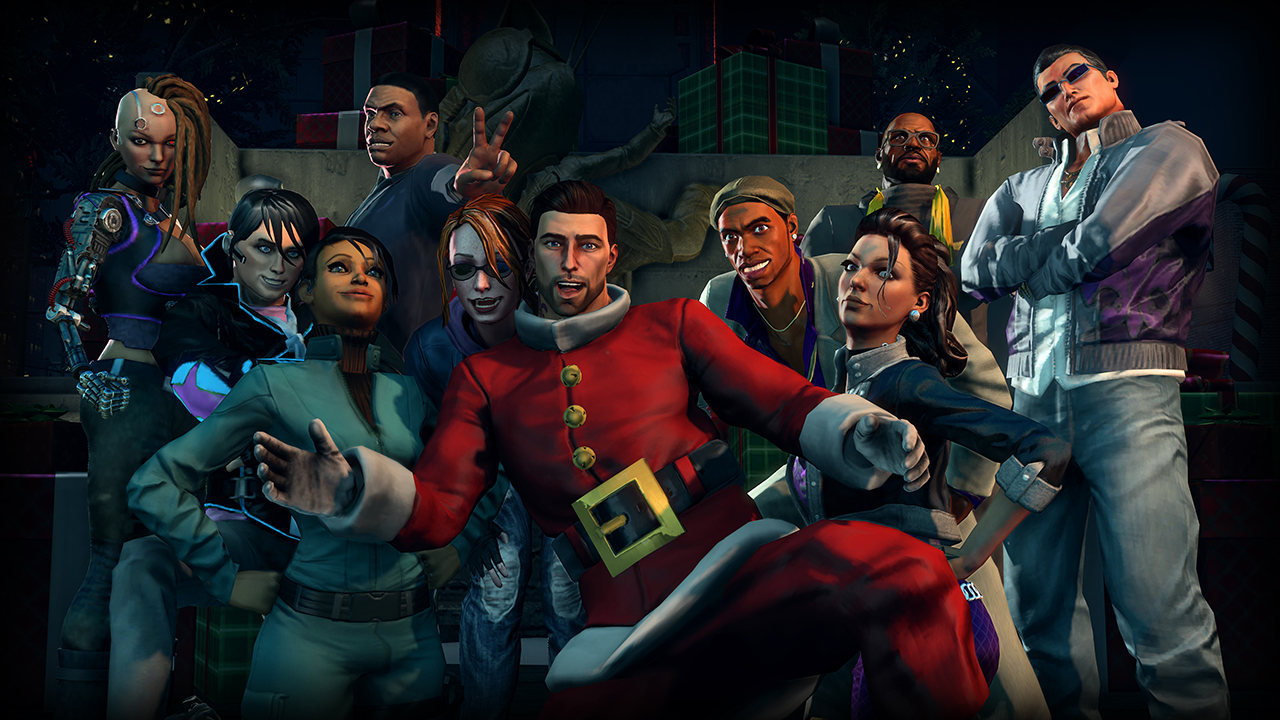
In this column, Richard Cobbett talked about the world of story and writing in games.
No series has ever made me pull a sharper 180 than Volition's Saints Row. I hated, hated, hated the first one over on Xbox, as much for its shameless ripping off of Grand Theft Auto as any of its actual crimes. It took a long time before I risked a few quid on the infamously buggy PC sequel, and at least a few months between firing up the first time and actually sinking in enough time to see the great game within. Fast-forward a few years, and Saints Row IV was a strong contender for my favourite game of 2013, in all its insane, chaotic glory. After that came Gat Out of Hell, and why not? It's as sensible an idea as anything else the Saints have done.
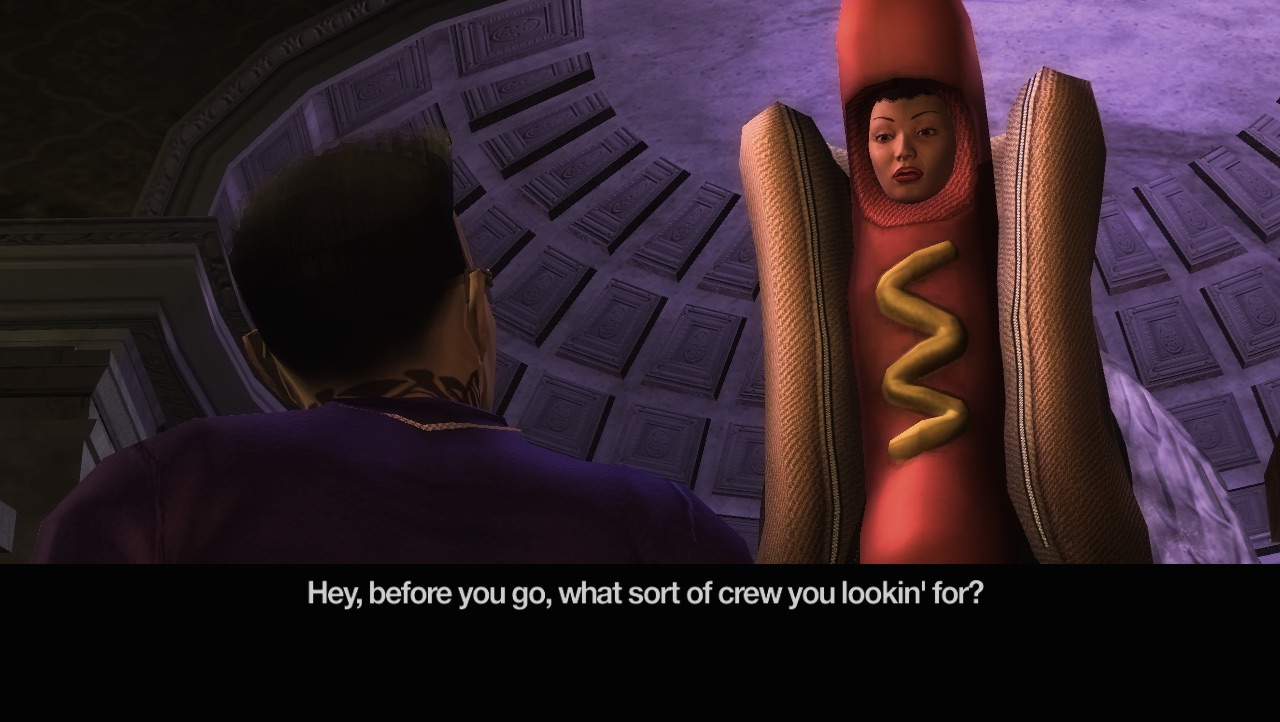
It's not however the violence and superpowers that really attracts me to the series, as fun as bombing around to 80s hits absolutely is. It's the evolution of its tone, and in particular the way that it broke away from most of its peers by eschewing cynicism in favour of finding a heart. In Saints Row 2, the main character - the Boss - is a straight-up monster, happily doing things like crippling a musician's hand just to make a point and making another gang leader kill his girlfriend by sticking her into the boot of a car he's about to crush with a monster truck. The word is 'Damn', especially in a relatively light game full of goofy diversions and cartoon villains.
Where most series would likely have stepped up the edginess to torture and other horrible content however, Volition chose a new path. In Saints Row 3 you can see the series at a crossroads; the Saints being recast as celebrities rather than really crooks, but the world still flapping around and trying to be edgy with sex content and lots of prostitutes and strip clubs and whatever.
It's actually a pretty fascinating game, especially the bits that are broken, incongruous and held together with sticky-tape. Just for starters, it's a world whose main character considers stripper poles an essential part of any base and can wield a giant dick on a stick, but also one of the few GTA-style games where female characters are casually in positions of power on both sides of the line and able to give as good as they get. It's a story wise enough to be goofy, so that you don't get the GTA incongruities of murdering a thousand cops while valiantly fighting to clear your name of shooting a cop, or having Nico Bellic sob about violence while toting a rocket launcher. It's also one where the main characters... and this is very rare in oh-so-edgy mature games... actually like each other. All of this comes not out of the blue, but as a result of decisions made, examined, evaluated, and changed based on what the creators wanted rather than necessarily audience expectations.
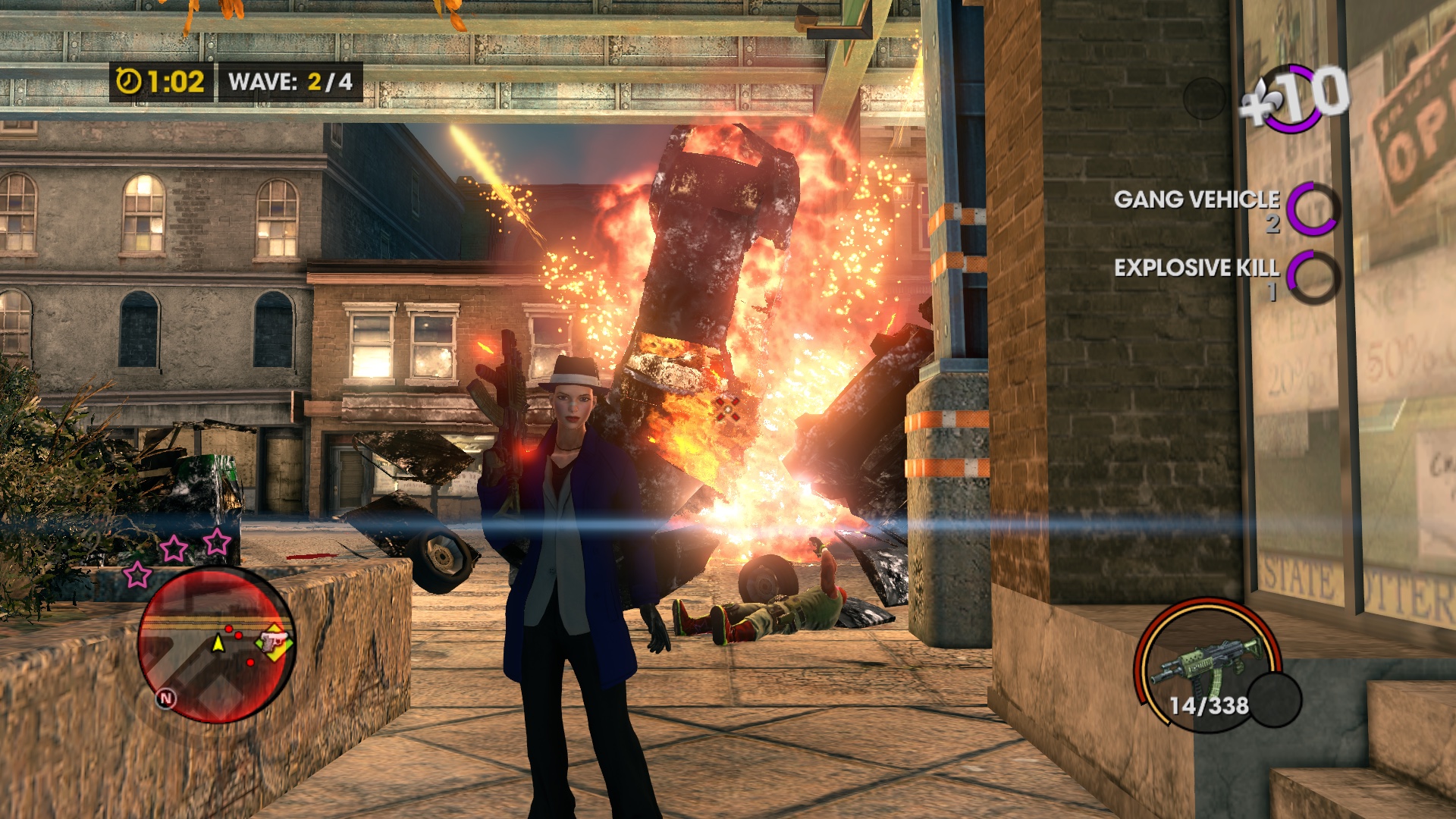
Saints Row IV took this and ran with it. It's the silliness that inevitably comes to mind when thinking about it, with its alien invasion plot and Matrix world and DLC where the Saints have to go save Santa Claus and all that jazz. What actually makes it though is that under its goofiness and flapping penis swords and more explosions than a dropped match in the Fireworks Dimension is a genuine warmth that spreads to every part of the game. The Boss is no longer either sociopath or supervillain, but a 'puckish rogue' who you absolutely do not want to cross, but will otherwise have your back to the end of the world and beyond. The Saints may squabble and fight, but it's their friendship and loyalty that defines them rather than their greed and avarice, along with a new willingness to work with and befriend old enemies.
Most importantly of all, while GTA is primarily about taking shots and snarking at the world, Saints Row IV is about celebrating it. It's a game of geeking out, whether of fictional stuff like the gang's growing love of NyteBlayde, or simply rampaging through a virtual world without consequences and knowing that you have the TOUCH, and you have the POOOOOWER. Even when it parodies specific things, like Metal Gear Solid and Mass Effect, it's a fond ribbing at most. We are after all talking about a game whose idea of a romance quest is "Hey, Kinzie. Wanna fuck?" "Sure!"
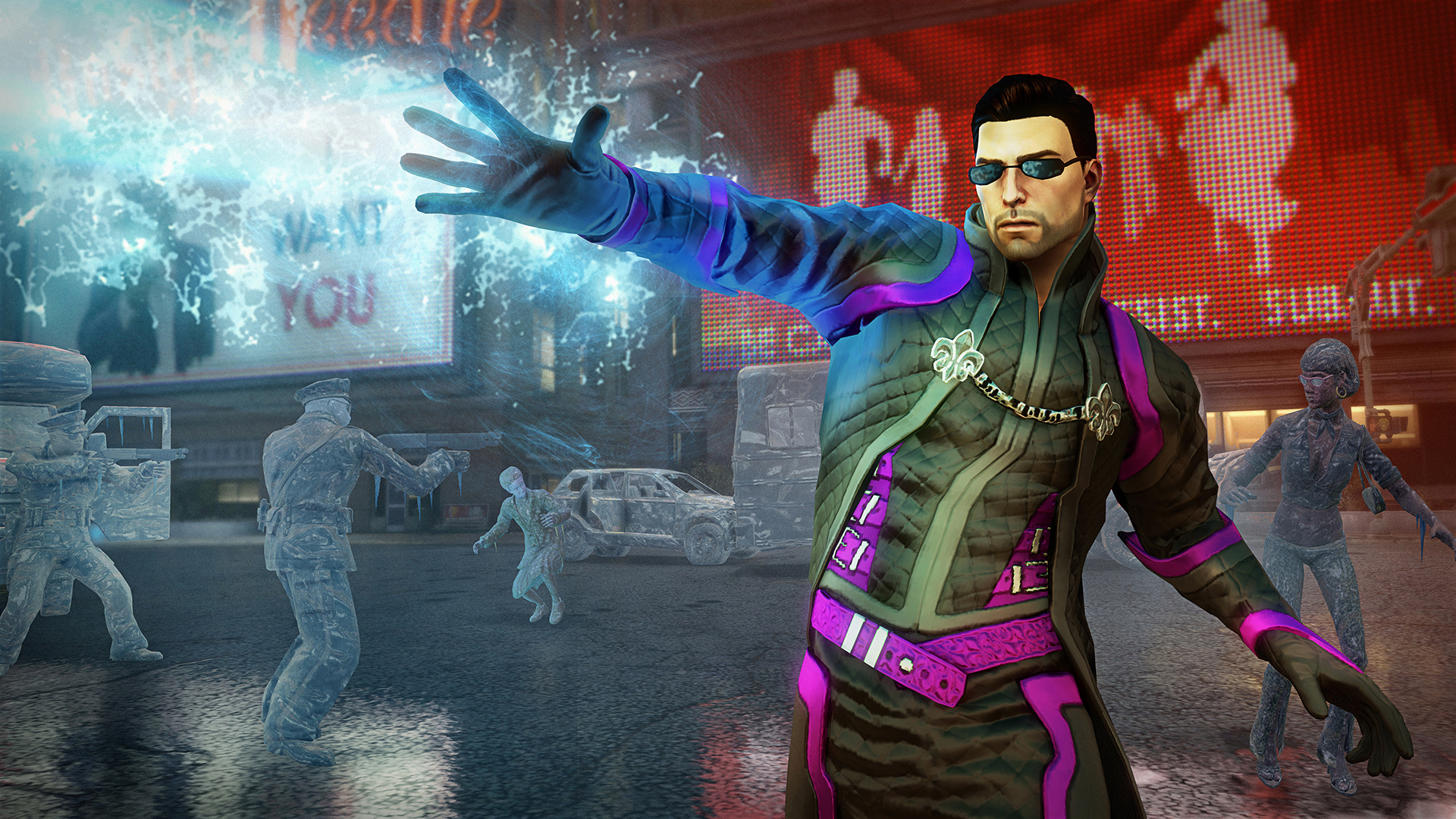
It's easy to say that all this just trivialises the game and makes it nonsense, but that's doing Volition's work a huge disservice. Yes, an alien invasion is a silly premise for a series that at least pretended to be grounded. However, what Saints Row IV understood better than most is that effective moments have very little to do with what's actually happening on screen, and everything to do with the reactions. The Boss' desperation to rescue believed-dead best friend Johnny Gat for instance is played entirely straight, never mind that they're trying to rescue him from an alien mothership. Their reaction to seeing that the villain wasn't bluffing about blowing up the world is all the more effective for being a serious moment amongst so much silliness - an emotional sucker punch to the gut. GTA IV spent god only knows how many millions to try and annoy the world by having Roman demand Niko take him bowling, but Saints Row IV makes an easy connection for the cost of licensing "The Boys Are Back In Town".
Keep up to date with the most important stories and the best deals, as picked by the PC Gamer team.
Even the attitude is braver than it might seem. Cynicism is easy, especially these days. Hate is cheap. To actively stand behind something is difficult; to publicly embrace things without a shield of irony. Saints Row IV had the balls to do that throughout, from the cheese of having the whole gang together to sing Opposites Attract to the little text adventures scattered around the game to the superpowers being balanced for fun over all else, to yes, the goofy sex jokes. They're still in there and the Saints still banter about strippers and bondage clubs and the like (heck, there was a DLC called "Enter The Dominatrix"), just without a lot of the unpleasant stuff that detracted from the humour. What remains is Volition packaging up everything it actually likes and is amused by in the hope that the world would as well; something that takes particular guts when you consider how poor most comedy games are, and how edgy GTA has proven the mainstream market likes its their open-world chaos.
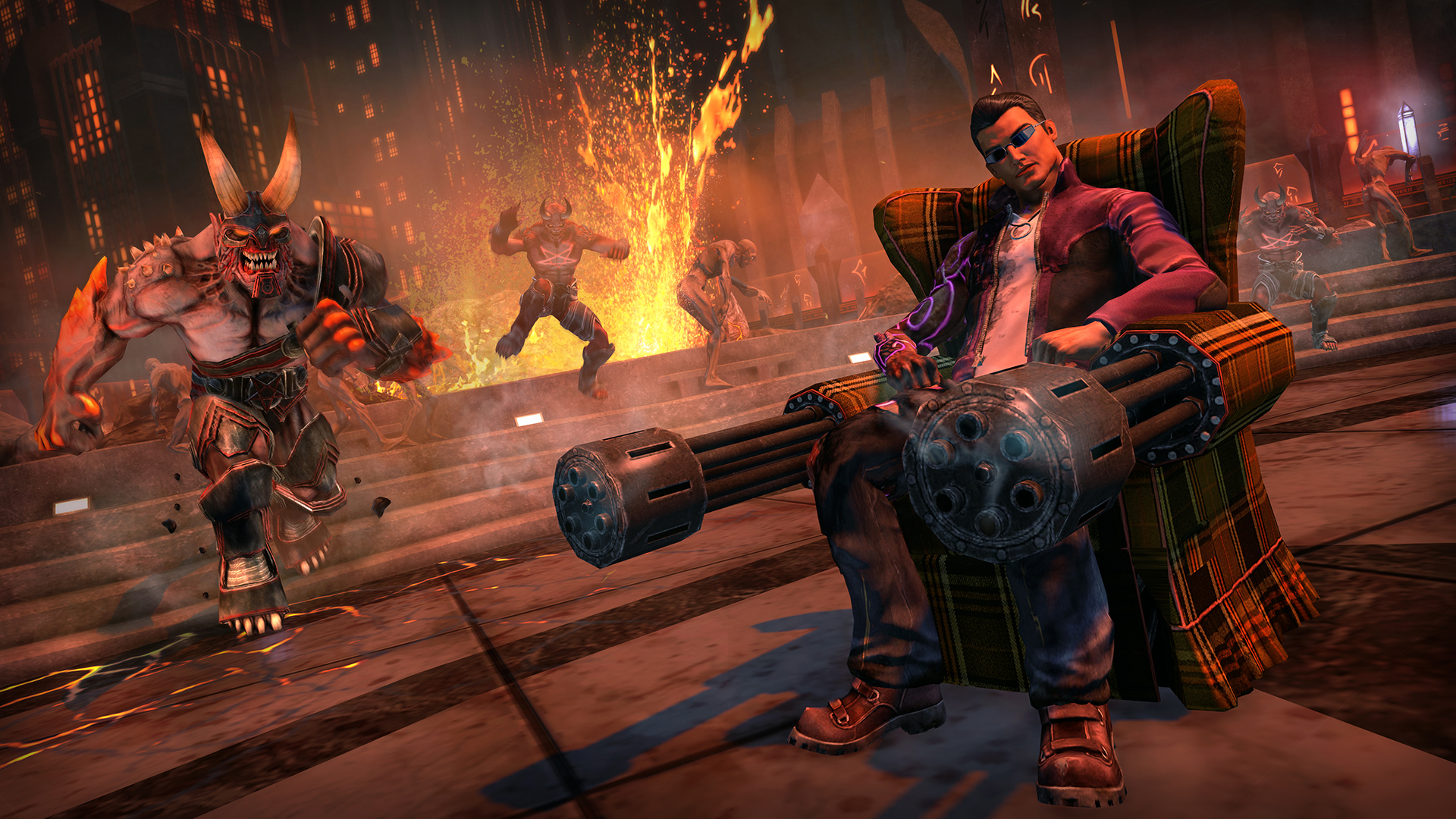
What the games have also offered is a great chance to see a series discover itself before our very eyes, with the mechanics remaining relatively consistent but the experience radically different with each new game and each new evolution.

